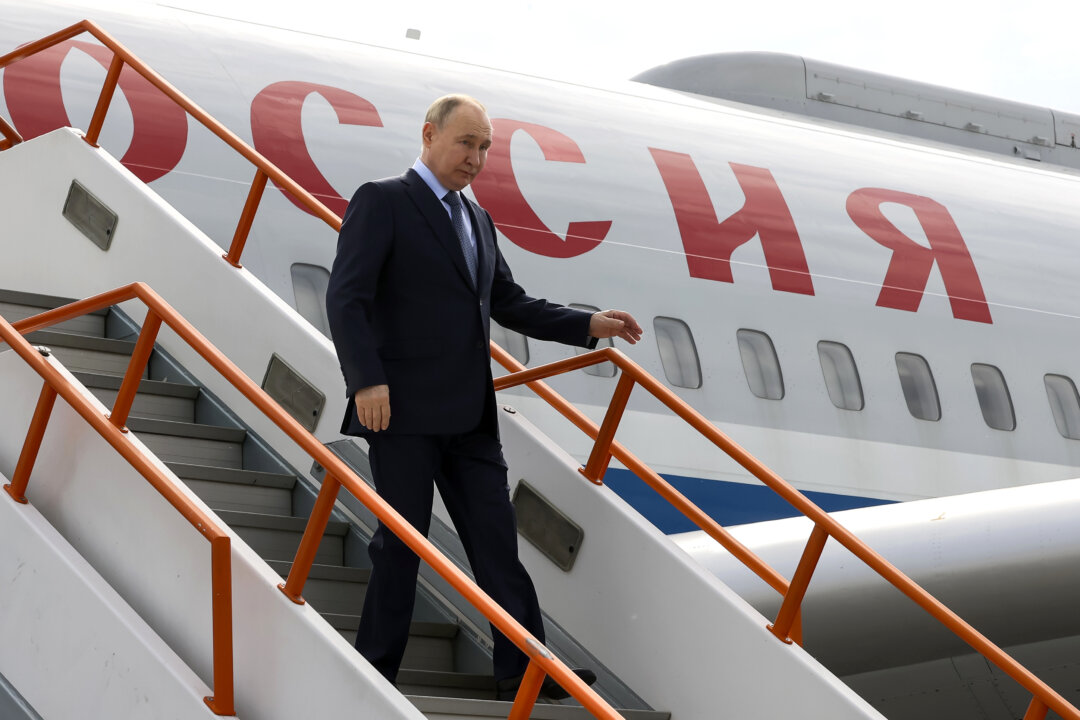Russian leader receives warm welcome in Vietnam, while US officials prepare to follow up.
Washington is dispatching its top diplomat for East Asia, Daniel Kritenbrink, to Vietnam to reiterate its commitment to working with Hanoi to ensure a “free and open” Indo-Pacific region.
According to the U.S. State Department, Mr. Kritenbrink’s visit is to reaffirm “U.S. support for a strong, independent, and prosperous Vietnam.”
The announcement was made one day after Russian President Vladimir Putin paid a landmark visit to Hanoi, where he received a warm welcome from his Vietnamese counterpart.
State Department spokesman Matthew Miller confirmed that Mr. Kritenbrink, U.S. assistant secretary of state for East Asian and Pacific affairs, would travel to Hanoi on June 21.
He told reporters on June 20 that the diplomat’s trip had been planned “well before this visit by President Putin.”
The United States has long maintained friendly relations with Vietnam.
According to some foreign policy experts, the United States relies on its good relations with Vietnam to counter Chinese influence in the Indo-Pacific region.
Last year, Washington upgraded its ties with Hanoi and the United States is currently Vietnam’s top export market.
“The United States elevated its bilateral relationship with Vietnam to a historic level, basically upgrading it to a comprehensive strategic partnership,” White House national security spokesman John Kirby told reporters on June 20.
“We’re going to stay focused on continuing to deepen it, broaden it, and improve it for our own mutual benefit to each other and to the region.”

On June 20, Mr. Putin and a high-ranking Russian delegation arrived in Hanoi, where they received a warm welcome—including a 21-gun salute.
After meeting with Vietnamese President To Lam, Mr. Putin stressed Moscow’s commitment to “deepening the comprehensive strategic partnership with Vietnam, which remains at the top of our foreign policy agenda.”
Both countries, he said, sought to create a “reliable security architecture” in the Asia-Pacific based on shared interests and the peaceful resolution of disputes.
Mr. Lam lavished praise on the Russian leader, who, he said, had contributed to “peace, stability, and development” in the region.
During the one-day visit, the two leaders signed a raft of bilateral agreements, including several in the energy field.
One day earlier, the Russian delegation visited Pyongyang, where Mr. Putin and his North Korean counterpart signed a “strategic partnership” treaty.
Among other things, the treaty reportedly stipulates that each party must come to the other’s defense if either is attacked by a third country.
Mr. Miller described the treaty—and the potential for arms transfers between the two countries—as “incredibly concerning.”
“It would destabilize the Korean Peninsula and potentially, depending on the type of weapons they provide, violate UN Security Council resolutions that Russia itself has supported,” the spokesman said.
Moscow and Pyongyang say the strategic partnership treaty is purely defensive and is not directed at any third parties.
“Cooperation with our partners is in no way directed against third countries,” Kremlin spokesman Dmitry Peskov said on June 21.
Russia’s interaction with foreign partners, he said, “is aimed exclusively at promoting the wellbeing of the people of those countries involved.”

Washington, meanwhile, has criticized both Vietnam and North Korea for hosting the Russian leader.
“We don’t believe any country should give Mr. Putin a platform to promote his war of aggression against Ukraine,” a State Department spokesperson told The Epoch Times after the Russian leader’s recent visit to Pyongyang.
“We cannot turn a blind eye to the clear violations of international law Russia has committed in Ukraine,” the spokesperson said.
While the Russian delegation was in Vietnam, Mr. Miller acknowledged the “longstanding close ties” between Moscow and Hanoi.
“That said, we expect that any country, when it engages in conversations with the government of Russia … will make clear their respect for the principles of the UN Charter … and convey that those principles must be upheld across the world,” Mr. Miller said at a press briefing.
Reuters contributed to this report.

